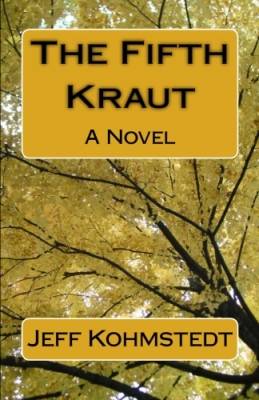Author’s Note: This is the first of what I hope is a series of articles about writing and getting published.
 Julie Cross’s journey from an aspiring writer punching out story ideas in Borders to becoming a published author is fascinating. The local author and busy mother of three launched her first novel, Tempest, at the Champaign Public Library this past Saturday. The book is about Jackson Meyer, a 19-year-old time traveller, who goes back in time to save his fatally shot girlfriend.
Julie Cross’s journey from an aspiring writer punching out story ideas in Borders to becoming a published author is fascinating. The local author and busy mother of three launched her first novel, Tempest, at the Champaign Public Library this past Saturday. The book is about Jackson Meyer, a 19-year-old time traveller, who goes back in time to save his fatally shot girlfriend.
How Cross “made it” is an amazing story in its own right. She wrote when her work and family allowed it, taking time off during the day for a couple of hours to write. Later in the evening, she would pick it up again, sometimes dedicating five hours a day to the work. Add her reading two to three books a week and her family life, Cross is truly one busy and dedicated woman. It’s all the more awe-inspiring to see her success take off as it has. She drafted Tempest in 2009, and in less than three years found a publisher, an agent, signed a trilogy book deal, and garnered the interest of Hollywood movie makers.
 Her success got me to thinking about my own writing. I’ve been fiction writing on the side for about seven years, and surely that’s seven years too few. I’ve slaved for four years to finally self publish my first novel, The Fifth Kraut. (I know, a shameless plug). Every time I see a new author published, I wonder why I didn’t pursue that dream earlier in life. If I have one regret, it’s that I put that pen down after I wrote a silly little story about a boy, a rifle, and a squirrel in the seventh grade. Picking that pen up so many years later is like trying to pick up running again after too many years. It is painful.
Her success got me to thinking about my own writing. I’ve been fiction writing on the side for about seven years, and surely that’s seven years too few. I’ve slaved for four years to finally self publish my first novel, The Fifth Kraut. (I know, a shameless plug). Every time I see a new author published, I wonder why I didn’t pursue that dream earlier in life. If I have one regret, it’s that I put that pen down after I wrote a silly little story about a boy, a rifle, and a squirrel in the seventh grade. Picking that pen up so many years later is like trying to pick up running again after too many years. It is painful.
In getting published, Cross said she sent query letters to around 40 or 50 literary agents, that fickle group of middlemen and women who stand between you as a writer and the publishing houses. In a way, it’s like applying for a job you know you’re not going to get. You have to do your research, figure out which agent is right for your story, send off your letter following all of the prescribed requirements, all in the hope that your idea is “the one” in the hundreds they probably receive in a given week. It can be very discouraging, and it takes perseverance. Oh yeah, and a thick skin too. No one likes rejection, least of all writers.
To give you a sense of what I’m talking about, here are a few that I’ve received in the past:
Many thanks for your submission.
I’m sorry to say that in this instance I am going to pass on your work. The children’s and YA market is very competitive, as you may well know, and I’m afraid I don’t feel your story is quite standout enough for me to be confident of placing it for you at this time.
Another agent may well, of course, feel differently — this remains a very subjective business.
Wishing you all the very best and thanks so much for giving me the opportunity to consider your work.
Admittedly, this is probably a form letter. Nevertheless, I have to say I feel good about being rejected. I can’t say for sure, but I feel that maybe the agent actually glanced at what I sent before rejecting it.
Here’s another:
Thank you for giving us the opportunity to consider your work. Unfortunately, we did not feel your project was a right fit for our agency. But we do wish you the best of luck.
Please forgive the form letter, but the enormous volume of inquiries we receive obliges us to respond in this manner. Thank you, and again, best wishes in your future endeavors.
Yes! Warm and fuzzy feelings abound! An “enormous volume … obliges us to respond in this manner.” Awesome! Sorry to have bothered you.
Or, how about this one … sent 65 minutes after I hit the send button:
Thanks so much for your query. Unfortunately, though, I don’t believe I’d be the right agent for your work.
I wish you much success.
An author friend of mine thinks that maybe this agent isn’t taking any new clients, so I shouldn’t read too much into it. Nevertheless, when they say it will take four to six weeks to get back to you, such an immediate rejection is disheartening, especially given it took me more than 65 minutes to research the agent, get my materials ready, and send it off.
Or, it might just be that the idea sucks. Right? I mean, that’s the beauty in Cross’s story. It hits you in the face so that you think, damn, it’s obvious. Why didn’t I think of it?
Julie Cross’s story, both her personal one and the one she’s written, speak volumes about persistence, determination, and talent.
You can read more about Jeff’s novel, including an excerpt from the book and how to buy it, at thefifthkraut.com.
~~*~~








